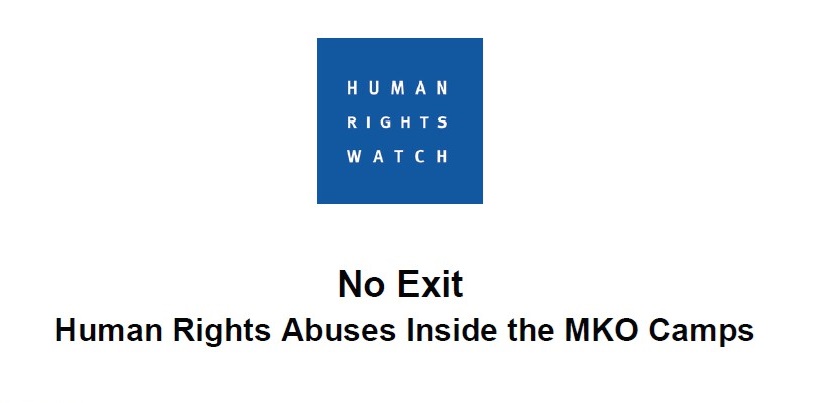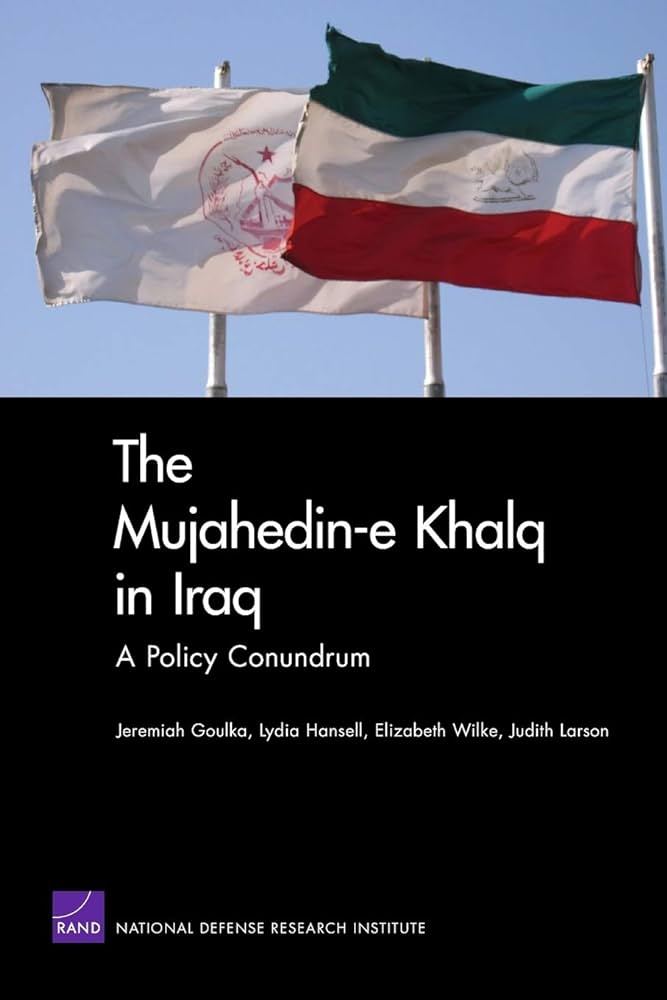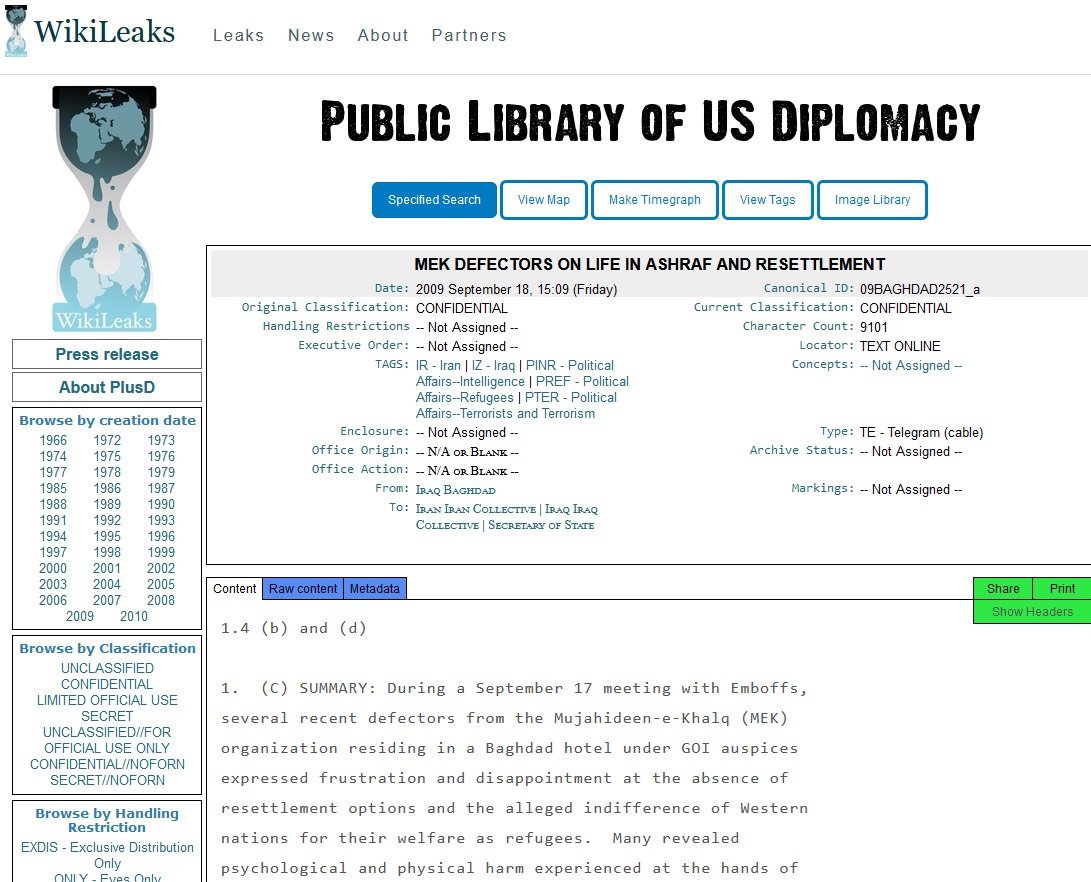 On this significant occasion of International Human Rights Day, as we commemorate the universal principles of human rights, we are compelled to shed light on the grave challenges faced by Iranian families of terror victims due to the actions of the Mujahedin-e Khalq Organization (aka MEK, MKO, PMOI). In the spirit of advocating for justice and transparency, this article aims to spotlight documented human rights abuses within the Mujahedin-e Khalq Organization (MEK). Despite the MEK's claims, it has faced international scrutiny, with various documents revealing patterns of coercion and violence within the group. As we delve into these documents, it is important to acknowledge that there are numerous other sources corroborating the concerns about the MEK's practices and its involvement in acts of terrorism. Through this exploration, we aim to contribute to a deeper understanding of the human rights violations perpetrated by this group.
On this significant occasion of International Human Rights Day, as we commemorate the universal principles of human rights, we are compelled to shed light on the grave challenges faced by Iranian families of terror victims due to the actions of the Mujahedin-e Khalq Organization (aka MEK, MKO, PMOI). In the spirit of advocating for justice and transparency, this article aims to spotlight documented human rights abuses within the Mujahedin-e Khalq Organization (MEK). Despite the MEK's claims, it has faced international scrutiny, with various documents revealing patterns of coercion and violence within the group. As we delve into these documents, it is important to acknowledge that there are numerous other sources corroborating the concerns about the MEK's practices and its involvement in acts of terrorism. Through this exploration, we aim to contribute to a deeper understanding of the human rights violations perpetrated by this group.
Abuses Inside the MKO Camps (HRW - 2005)
The Human Rights Watch (HRW) report titled "No Exit: Human Rights Abuses Inside the MKO Camps" exposes a distressing scene of systematic abuses within the confines of the Mujahedin-e Khalq Organization (MEK) camps. The documented testimonies of former members reveal a disturbing pattern of coercion, brutality, and psychological torment orchestrated by the MEK leadership. Instances of prolonged incommunicado and solitary confinement describe a gloomy situation, with some detainees enduring years of isolation. Physical abuse, including severe beatings, was reportedly commonplace, leaving indelible scars on dissident members who dared to challenge the organization's policies. The MKO's leadership, comprised of Masoud and Maryam Rajavi, orchestrated an "ideological revolution" that mandated extreme measures, such as forced mass divorces and the renunciation of personal attachments, resulting in profound psychological and emotional distress. The gravity of the situation is further underscored by the revelations of the MKO's role in turning dissidents over to Iraqi authorities, leading to their imprisonment in Abu Ghraib. These vivid accounts provide a glimpse into the human rights abuses perpetuated within the MEK camps during a tumultuous period, compelling us to confront the stark realities hidden behind the organization's public façade.
The MKO as a Cult (RAND - 2009)
The comprehensive RAND Corporation report, "The Mujahedin-e Khalq in Iraq: A Policy Conundrum" (2009), delves into the intricate layers that define the Mujahedin-e Khalq Organization (MEK), portraying a complex tapestry marked by cult-like characteristics. Initiated during the mid-1980s by Masoud Rajavi, the "ideological revolution" unfolded in Paris, transforming the tight social bonds of the MEK into something more insidious. The report unearths the group's near-religious devotion to the Rajavis, featuring public self-deprecation sessions, enforced celibacy, mandatory divorces, and gender segregation. Operation Eternal Light's failure led to a series of policy changes, intensifying the MEK's insularity and cementing its transformation into a cult. The leadership, funded by Saddam Hussein, constructed self-sufficient camps with schools, medical clinics, and prisons, fostering an environment detached from the external world. Former members attest to forced labor, limited sleep, and punishment for a range of offenses, including expressing dissent, avoiding mandatory activities, and even having personal thoughts. This coercive environment, exemplified by the enforced "ideological divorce," reflects the manipulation and control tactics employed by the MKO leadership. The RAND report intricately dissects the MEK's evolution into a cult, providing a nuanced understanding of the organization's internal dynamics that transcend its public image.

McCain's Concerns on MKO's Lobbying
Senator John McCain's concerns regarding the Mujahedin-e Khalq Organization's (MEK) lobbying efforts highlight a significant ethical dilemma. In his cautionary remarks, McCain underscored the potential dangers of supporting groups that, under the guise of democracy and human rights advocacy, might conceal hidden agendas and extremist ideologies. The MEK, despite projecting itself as a democratic coalition and human rights advocate, has faced scrutiny for its alleged terrorist nature. McCain's concern resonates with the broader ethical dilemma of endorsing organizations that claim to champion democratic values while potentially harboring undisclosed ties to foreign entities or engaging in violent activities. The MKO's lobbying activities have raised questions about transparency, accountability, and the integrity of democratic processes. While the MEK seeks political support and funds, McCain's words serve as a reminder of the imperative to scrutinize such groups thoroughly.
WikiLeaks Exposes MKO Defectors' Testimonies
Founded by Julian Assange, WikiLeaks has played a pivotal role in uncovering classified diplomatic cables that offer a stark glimpse into the lives of those who have defected from the Mujahedin-e Khalq Organization (MEK). One cable, classified by Gary Grappo, Minister Counselor for Political Affairs at the U.S. embassy in Baghdad, presents a series of revelations from "recent defectors" who experienced profound psychological and physical harm within the MEK. Their testimonies, shared through WikiLeaks, underscore the cult-like nature of the organization. These defectors, who sought refuge in Iraq, described the crushing of their personalities and the relentless pressure to conform to the MEK's rigid ideology. One defector in a wheelchair passionately spoke about the coercion, emphasizing that refusal to join the organization would result in being turned over to the Saddam regime. Their accounts detailed solitary confinement in MEK jails in Ashraf and the plea for medical assistance, highlighting dissatisfaction with the facilities provided by the Government of Iraq. WikiLeaks' disclosures shed light on the untold stories of those who faced coercion and torment within the MEK, emphasizing the profound impact on their physical and mental well-being.

MKO Rules by Brainwashing, Force, and Weapons
In a House of Lords Debate on February 26, 2003, the Mujahedin-e Khalq Organization (MEK) came under intense scrutiny, revealing a multifaceted approach to control that extended beyond ideological indoctrination. Despite the MKO's claims of being a modern human rights movement and a staunch opponent of the Iranian government, the debate shed light on the group's alleged disregard for human rights, resorting to brainwashing, force, and even weaponry to maintain authority. The MKO's assertions of promoting women's rights and opposing the Hijab were contradicted by the fact that female members were obliged to wear the Hijab. The existence of separate training camps for women further underscored the gender-based control within the organization. The debate pointed to a personality cult centered around Mr. Rajavi, the head of the MKO, emphasizing the extent to which members were subjected to psychological manipulation. The MKO's involvement in the Iran-Iraq war, fighting against Iran, added a layer of complexity to its purported commitment to human rights. The revelations during the House of Lords Debate painted a picture of an organization ruling not through ideals but through a combination of coercive techniques, physical force, and even military means, challenging its public image and calling for a reevaluation of the MKO's true nature.
Conclusion
The Mujahedin-e Khalq Organization (MEK) stands accused of perpetuating a wide range of human rights violations among its members. The revelations from reports by Human Rights Watch, RAND Corporation, John McCain's concerns, WikiLeaks disclosures, and the House of Lords Debate collectively unveil a tapestry of cruelty, manipulation, and coercion that extends far beyond the organization's professed ideals. However, the scope of the MEK's transgressions extends beyond its internal dynamics. In the 1980s, the group orchestrated a campaign of terror that claimed the lives of several thousand Iranian citizens through bombings, blind assassinations, and other ruthless means. As a glimmer of hope, news has surfaced that a trial is to be held for 104 members of this group in Tehran, Iran. This development signifies a critical step towards justice, holding those accountable for the grave crimes committed against innocent lives. As we bear witness to this pivotal moment, we remain steadfast in our commitment to upholding the principles of justice, human rights, and accountability, hoping that the trials ahead will bring solace to the victims and their families, ensuring that the pursuit of justice transcends the shadows cast by the Mujahedin-e Khalq Organization.
